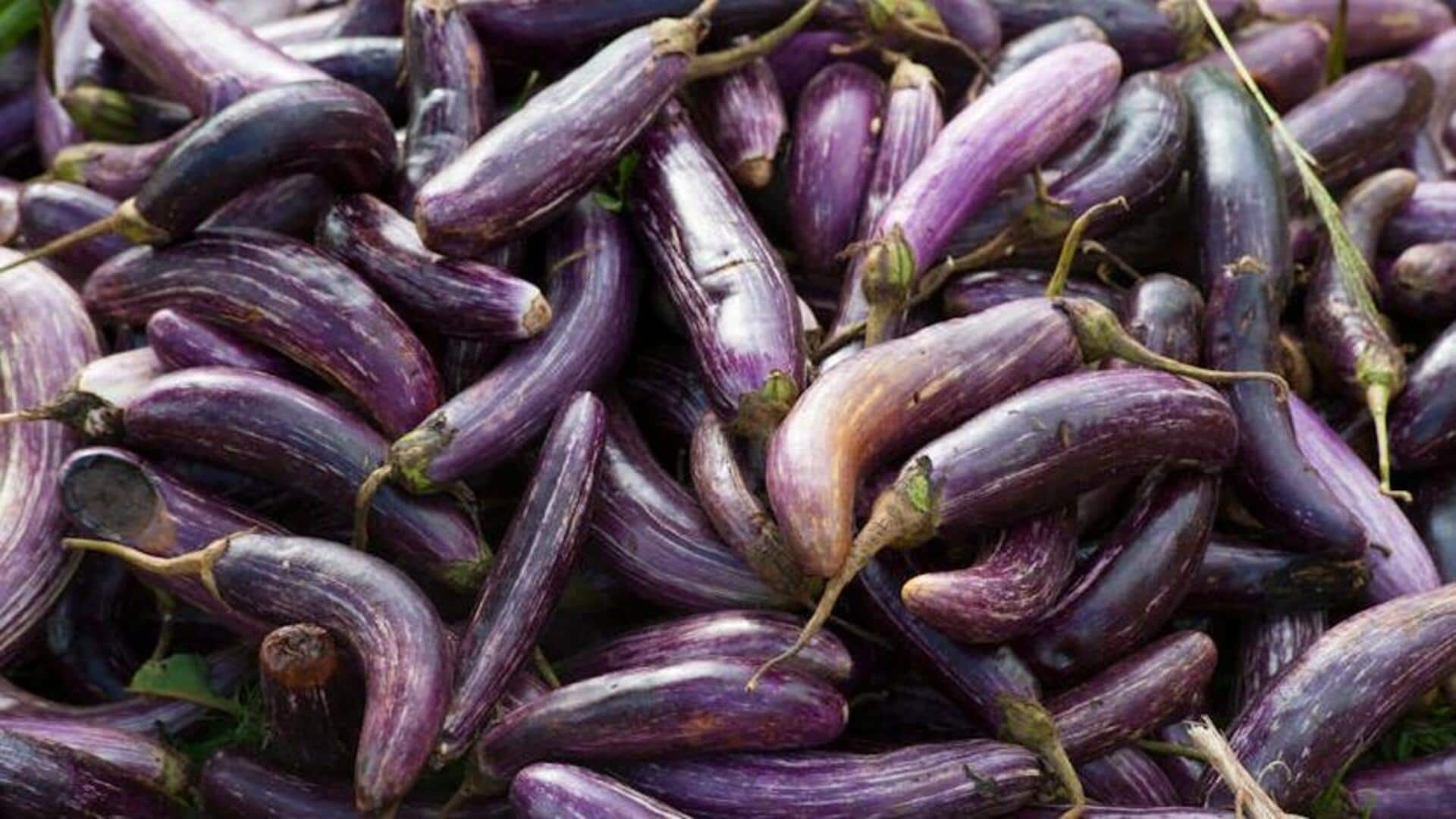
The enigmatic elegance of eggplant: An anthocyanin feast
What's the story
Eggplants, with their vibrant purple color, are not only beautiful to look at but also packed with health benefits.
This article explores the wonders and versatility of eggplants, focusing on their high content of anthocyanins, fiber, and vitamins.
Whether in classic dishes or creative recipes, eggplants provide a delicious and nutritious choice for vegetarians seeking to add variety to their meals.
Nutrient profile
A deep dive into anthocyanins
Eggplants are a rich source of anthocyanins, especially nasunin located in the skin, which exhibits strong antioxidant activity.
These antioxidants play a crucial role in shielding our cells from harm and are associated with a plethora of health advantages, encompassing heart health and diminished inflammation.
One serving of eggplant delivers 3% of your daily fiber requirement, apart from vitamin B6, vitamin C, and potassium.
Cooking tips
Culinary versatility unleashed
Eggplants are culinary stars. Bake them, roast them, grill them, or saute them.
Baking slices with a bit of olive oil brings out their deliciousness without the extra fat.
They are flavor sponges, so use them in dishes like ratatouille or baba ganoush for maximum yumminess.
Sprinkle some salt on the slices before you cook them. This helps get rid of any bitterness by pulling out the moisture.
Cost-effectiveness
Budget-friendly superfood
Adding eggplants to your diet won't empty your wallet.
Unlike other superfoods such as quinoa or avocados that may cost over $5 per serving in certain regions, eggplants are a budget-friendly option. They typically cost around $1-$2 per pound depending on the season and location.
So, if you want to incorporate nutrient-dense foods into your meals without shelling out big bucks, eggplants are a cost-effective choice.
Gardening tips
Growing your own eggplant
For gardening enthusiasts, growing your own eggplants is a cost-saving and satisfying way to guarantee the freshest ingredients for your meals.
Eggplants love warmth and full sun. For most climates, it's best to start seeds indoors about eight weeks before the last expected frost.
Proper care with consistent watering and fertilizing every two weeks once plants are established will reward you with abundant harvests throughout the growing season.
Recipe ideas
Creative recipes to try
Finding new and delicious ways to use eggplant in your meals is a great way to keep healthy eating interesting.
One easy and super tasty recipe is grilled eggplant slices layered with fresh tomato sauce and melted mozzarella cheese - it's a vegetarian twist on classic parmigiana that's both simple to make and indulgently flavorful.